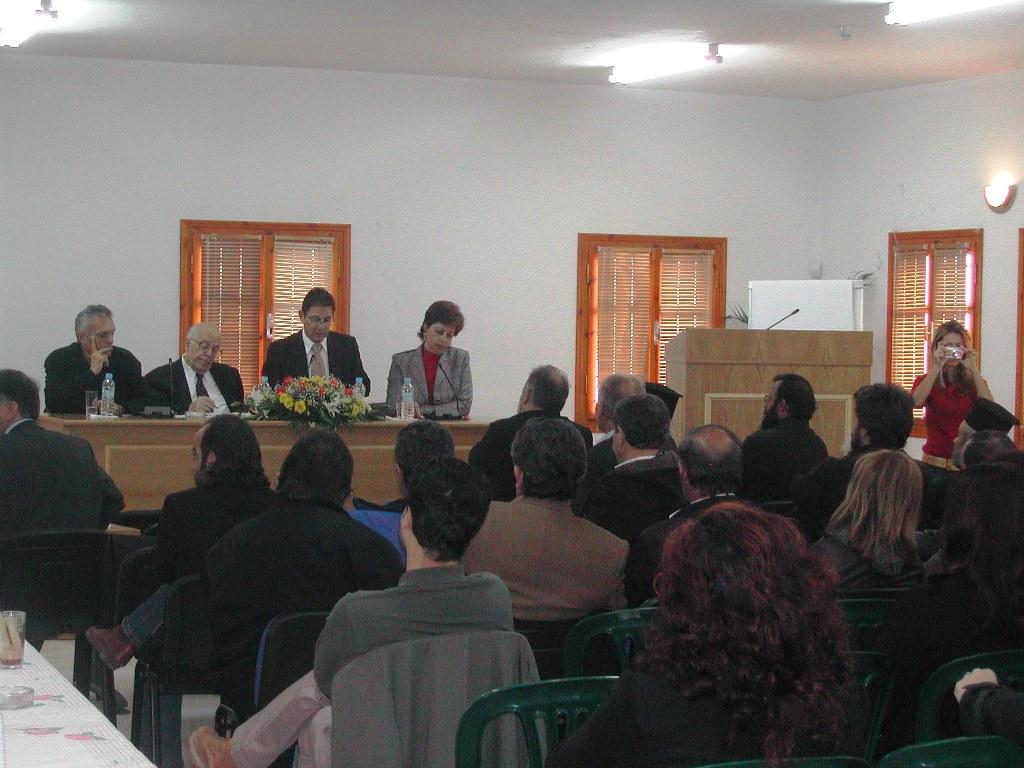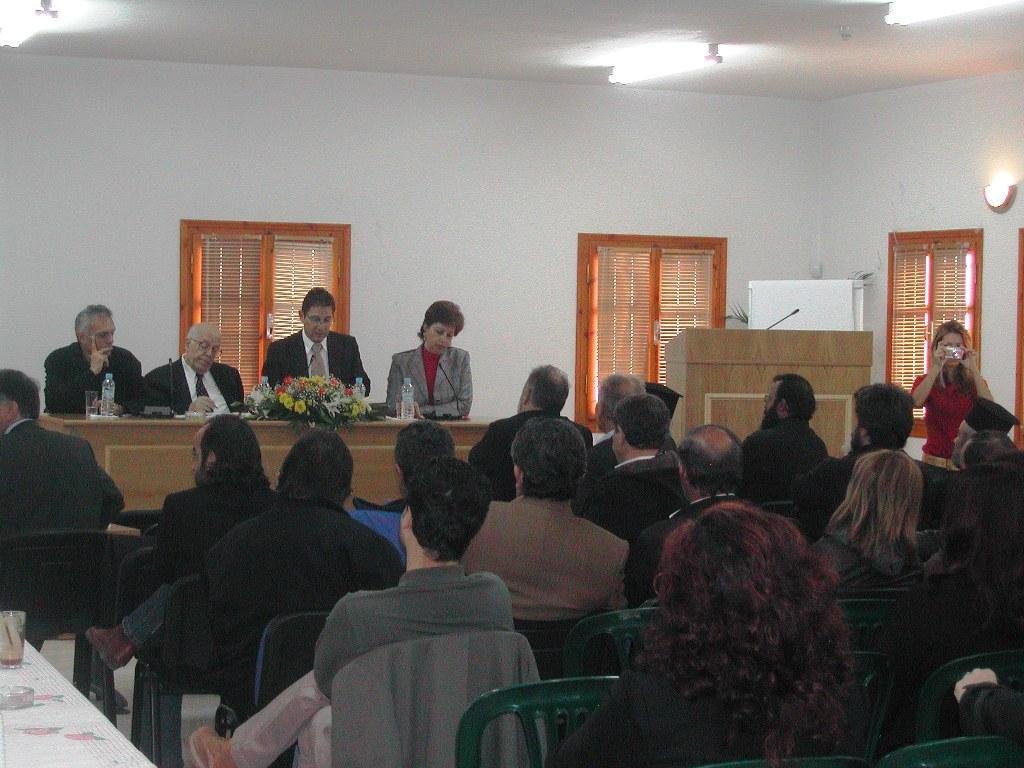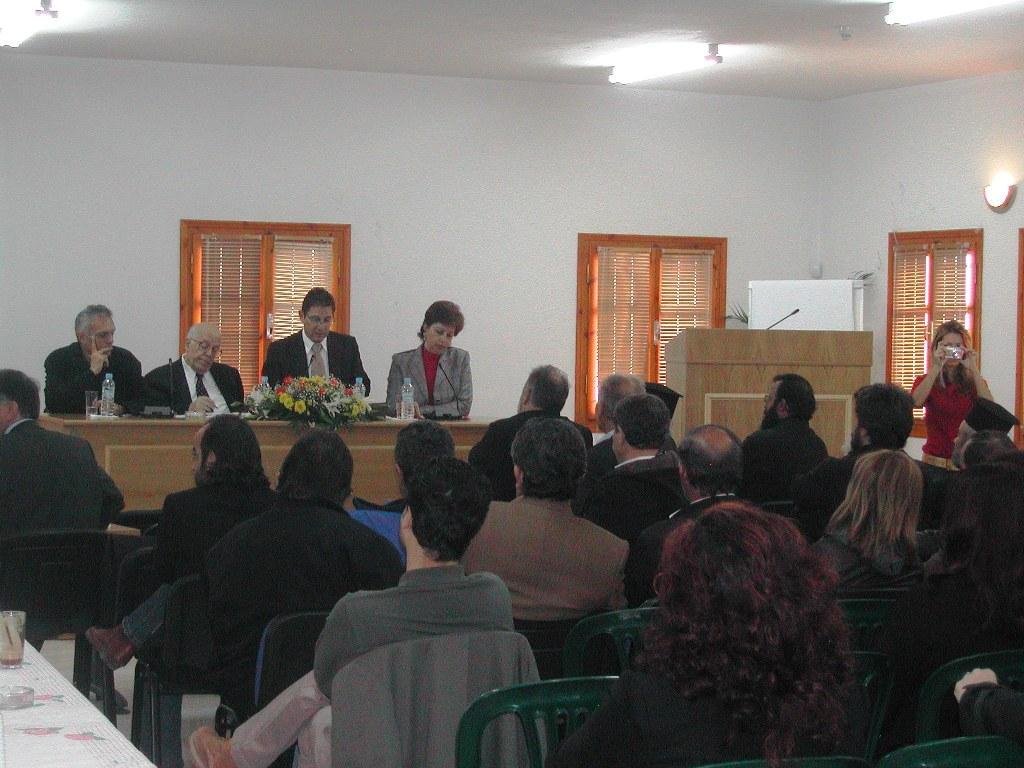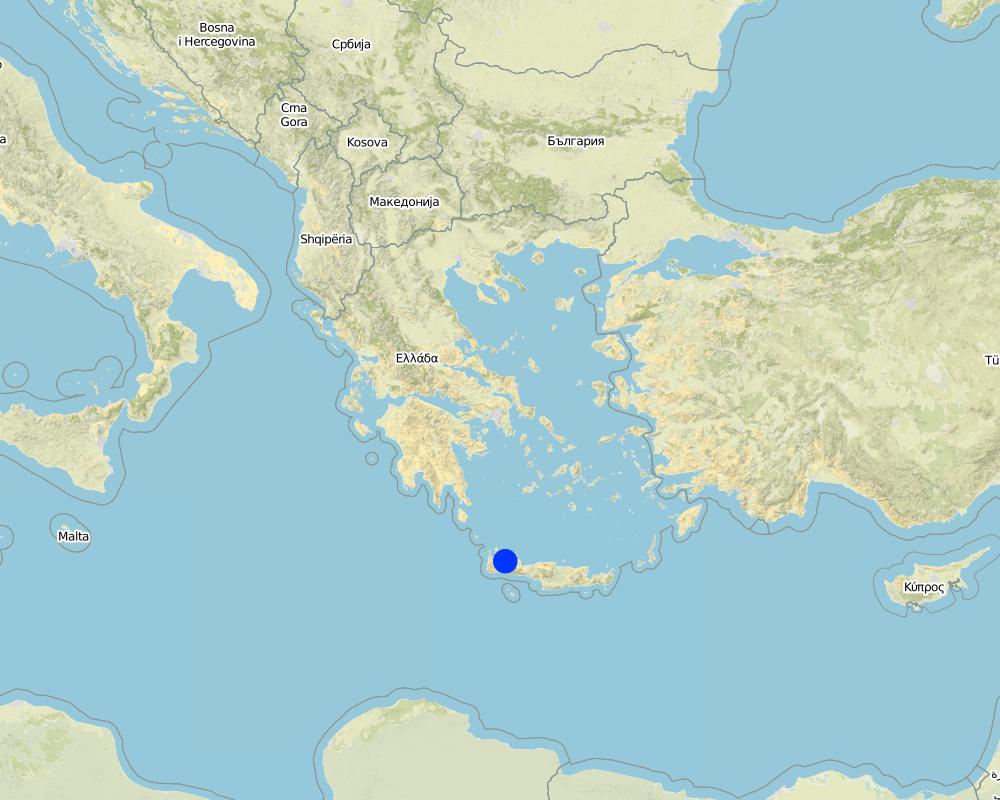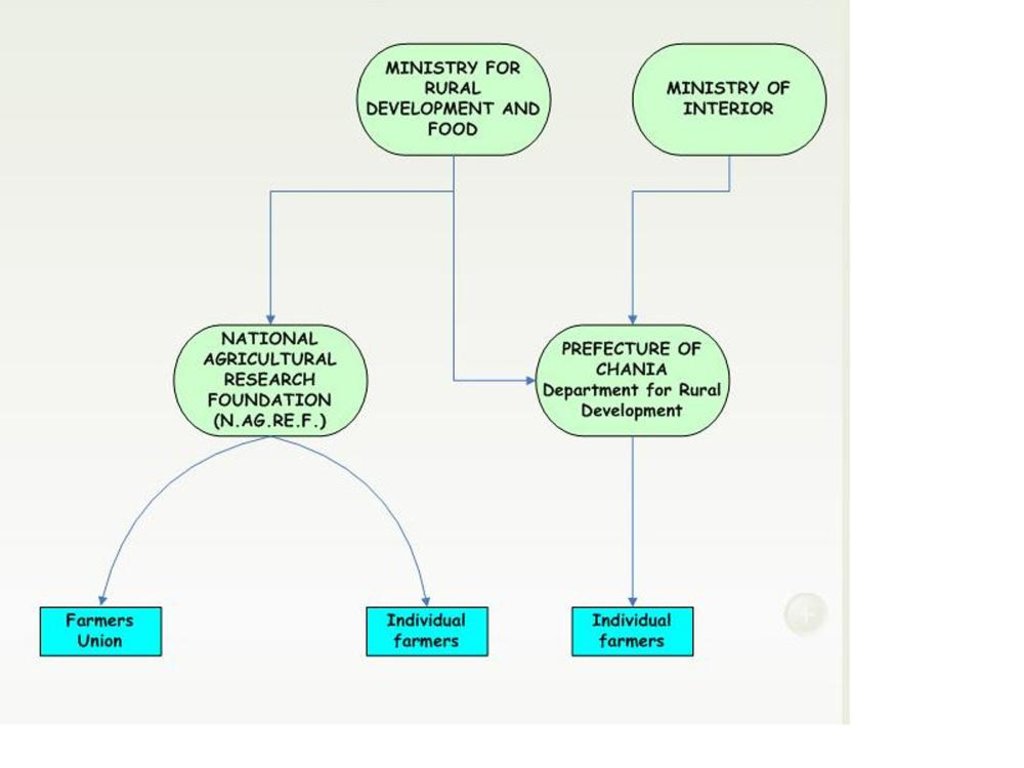Sustainable development of olive groves III [Greece]
- Creation:
- Update:
- Compiler: Costas Kosmas
- Editor: –
- Reviewer: Fabian Ottiger
approaches_2430 - Greece
View sections
Expand all Collapse all1. General information
1.2 Contact details of resource persons and institutions involved in the assessment and documentation of the Approach
Name of the institution(s) which facilitated the documentation/ evaluation of the Approach (if relevant)
Agricultural University of Athens (AUA) - Greece1.3 Conditions regarding the use of data documented through WOCAT
The compiler and key resource person(s) accept the conditions regarding the use of data documented through WOCAT:
Yes
1.4 Reference(s) to Questionnaire(s) on SLM Technologies
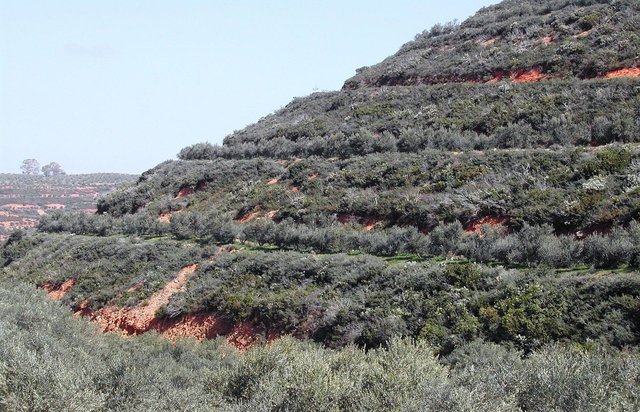
Land terracing in olive groves [Greece]
Terraces are constructions built mainly in hilly areas to reduce water erosion losses from cultivated erodible soils and for water conservation.
- Compiler: Costas Kosmas
2. Description of the SLM Approach
2.3 Photos of the Approach
2.5 Country/ region/ locations where the Approach has been applied
Country:
Greece
Region/ State/ Province:
Chania and Heraclion prefectures of Crete
Further specification of location:
Crete
Map
×2.6 Dates of initiation and termination of the Approach
Indicate year of initiation:
50
2.7 Type of Approach
- recent local initiative/ innovative
2.8 Main aims/ objectives of the Approach
The Approach focused on SLM only
easy to harvest the plants, to apply fertilisers and to conserve soil and water.
The SLM Approach addressed the following problems: Terraces are constructions built traditionally in hilly areas and the promotion of this technique is focused mainly in the maintenance of already existing plantations
2.9 Conditions enabling or hindering implementation of the Technology/ Technologies applied under the Approach
availability/ access to financial resources and services
- hindering
technology of high economic requirements
Treatment through the SLM Approach:
knowledge about SLM, access to technical support
- hindering
the cost and the labour work of costruction new terraces are prohibitorily. The mainenance of such constructions can be more easily achieved.
Treatment through the SLM Approach:
3. Participation and roles of stakeholders involved
3.1 Stakeholders involved in the Approach and their roles
- local land users/ local communities
Great differences between the participation of men and women because the majority of land users are men. The approach concerned mainly producers located in less favourable areas.
- SLM specialists/ agricultural advisers
- national government (planners, decision-makers)
3.2 Involvement of local land users/ local communities in the different phases of the Approach
| Involvement of local land users/ local communities | Specify who was involved and describe activities | |
|---|---|---|
| initiation/ motivation | interactive | |
| planning | interactive | |
| implementation | external support | |
| monitoring/ evaluation | none | |
| Research | none |
3.3 Flow chart (if available)
Description:
Organization chart showing the steering structure concerning the implementation of agricultural policy
3.4 Decision-making on the selection of SLM Technology/ Technologies
Specify who decided on the selection of the Technology/ Technologies to be implemented:
- SLM specialists alone
Explain:
Decisions on the method of implementing the SLM Technology were made by mainly by land users supported by SLM specialists. mechanized agriculture
4. Technical support, capacity building, and knowledge management
4.2 Advisory service
Do land users have access to an advisory service?
Yes
Describe/ comments:
Advisory service is quite adequate to ensure the continuation of land conservation activities
4.3 Institution strengthening (organizational development)
Have institutions been established or strengthened through the Approach?
- yes, a little
Specify the level(s) at which institutions have been strengthened or established:
- local
Specify type of support:
- financial
4.4 Monitoring and evaluation
Comments:
There were no changes in the Approach as a result of monitoring and evaluation
There were no changes in the Technology as a result of monitoring and evaluation
4.5 Research
Was research part of the Approach?
Yes
Specify topics:
- economics / marketing
- technology
Give further details and indicate who did the research:
ISPOT, AUA
Research was carried out both on station and on-farm
5. Financing and external material support
5.3 Subsidies for specific inputs (including labour)
If labour by land users was a substantial input, was it:
- voluntary
5.4 Credit
Was credit provided under the Approach for SLM activities?
No
6. Impact analysis and concluding statements
6.1 Impacts of the Approach
Did the Approach help land users to implement and maintain SLM Technologies?
- No
- Yes, little
- Yes, moderately
- Yes, greatly
decrease in soil loss and increase in water conservation
Did the Approach empower socially and economically disadvantaged groups?
- No
- Yes, little
- Yes, moderately
- Yes, greatly
mainly men old aged, Greeks
Did other land users / projects adopt the Approach?
- No
- Yes, little
- Yes, moderately
- Yes, greatly
whole country spatially
Did the Approach lead to improved livelihoods / human well-being?
- No
- Yes, little
- Yes, moderately
- Yes, greatly
increase in farmers income in hilly areas
Did the Approach help to alleviate poverty?
- No
- Yes, little
- Yes, moderately
- Yes, greatly
increasing income
6.2 Main motivation of land users to implement SLM
- increased production
- increased profit(ability), improved cost-benefit-ratio
- environmental consciousness
- well-being and livelihoods improvement
6.3 Sustainability of Approach activities
Can the land users sustain what has been implemented through the Approach (without external support)?
- no
If no or uncertain, specify and comment:
increased construction cost
7. References and links
7.1 Methods/ sources of information
- field visits, field surveys
- interviews with land users
Links and modules
Expand all Collapse allLinks

Land terracing in olive groves [Greece]
Terraces are constructions built mainly in hilly areas to reduce water erosion losses from cultivated erodible soils and for water conservation.
- Compiler: Costas Kosmas
Modules
No modules


